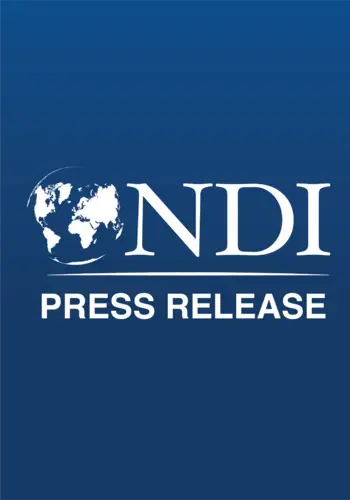NDI POLL: ECONOMY STILL TOP CONCERN FOR GEORGIANS; SUPPORT FOR NATO AND EU STABLE
TBILISI – Poll results released today by the National Democratic Institute (NDI) and CRRC Georgia reveal that economic anxieties continue to top Georgians’ list of primary concerns. The top issues for Georgians remain jobs (58 percent), rising prices and inflation (38 percent), and poverty (30 percent). As in previous polls, the vast majority of Georgians considers themselves unemployed, 66 percent, and only a third feel their economic situation will improve. Few (17 percent) believe their household is better off since 2012, while 82 percent report that they are the same or worse off.
With regard to the country’s direction, 32 percent believe Georgia is going in the right direction, up from 20 percent in the March 2016 poll, while 63 percent feel the country is not changing or going in the wrong direction.
“In multiple polls for years now, Georgians have consistently expressed concern about the country’s and their economic well-being, and they are not feeling any relief or improvement,” says Laura Thornton, NDI Senior Director. “With elections completed, the new government has a clear mandate to start responding and focus their attention and resources on addressing employment and the poor state of the country’s economic security.”
Georgians are equally divided in their evaluation of the performance of local government, and interaction with local government bodies is low, with only 14 percent of respondents reporting that they have interacted with the sakrebulo and 12 percent with the mayor’s office. Those who have interacted, however, rate the experience favorably saying that they were treated with respect, that staff were competent, and in a majority of cases helped solve their problems.
Support for the European Union (EU) and NATO remain high, with 72 percent of Georgians approving the country’s goal to join the EU and 61 percent to join NATO. Exceptions remain in minority settlements in which less than half support these goals. Age is also a factor, with support ratings more than 15 percent higher among younger respondents than older ones.
This poll examined issues related to women’s political participation, and the majority of Georgians believes that women are as capable as men in decision making. However, they acknowledge that access, resources, time, and culture affect their ability to participate on equal terms with their male counterparts. The vast majority of Georgians (74 percent) continue to believe that parliament should include at least 30 percent women, and that the current composition has too few women MPs, and approve of a mandatory gender quota.
They believe that more women in parliament would have either a positive or neutral impact (83 percent) and only eight percent state there would be a negative result from enhanced representation.
“Parties have dragged their feet on the issue of women’s political participation, as we see clearly from the composition of the candidate lists in the last election. The Georgian people, however, are ahead of their leaders and are clearly in favor of more concrete measures to ensure more equal representation,” - Thornton says.
NDI surveys public opinion to help Georgian stakeholders diagnose and address issues of public concern by providing accurate, unbiased and statistically-sound data. This poll aims to capture the most relevant information to foster the development of responsive policies and governance. A wide range of leaders from across the political spectrum have reported that the polls are important to their work and encourage continued polling.
The results reflect data collected from November 4 to December 4 through face-to-face interviews with a nationwide representative sample of Georgia’s adult population, excluding occupied territories that included 3,141 completed interviews. The average margin of error is +/- 1,8 percent.
NDI’s survey work is funded by the Swedish International Development Cooperation Agency (Sida).
Contact: Diana Chachua Senior program and Communications officer Tel: +995 577 77 96 39 E-mail: [email protected]
-END-
NDI is an independent, nonprofit, nonpartisan organization working to support and strengthen democratic institutions worldwide through citizen participation, openness and accountability in government. More information is available at www.ndi.org.
CRRC-Georgia is a non-governmental, non-profit research organization with a mission to promote evidence based debates on policy issues by providing reliable, up-to-date and accessible data and analysis. More information is available at http://www.crrc.ge

